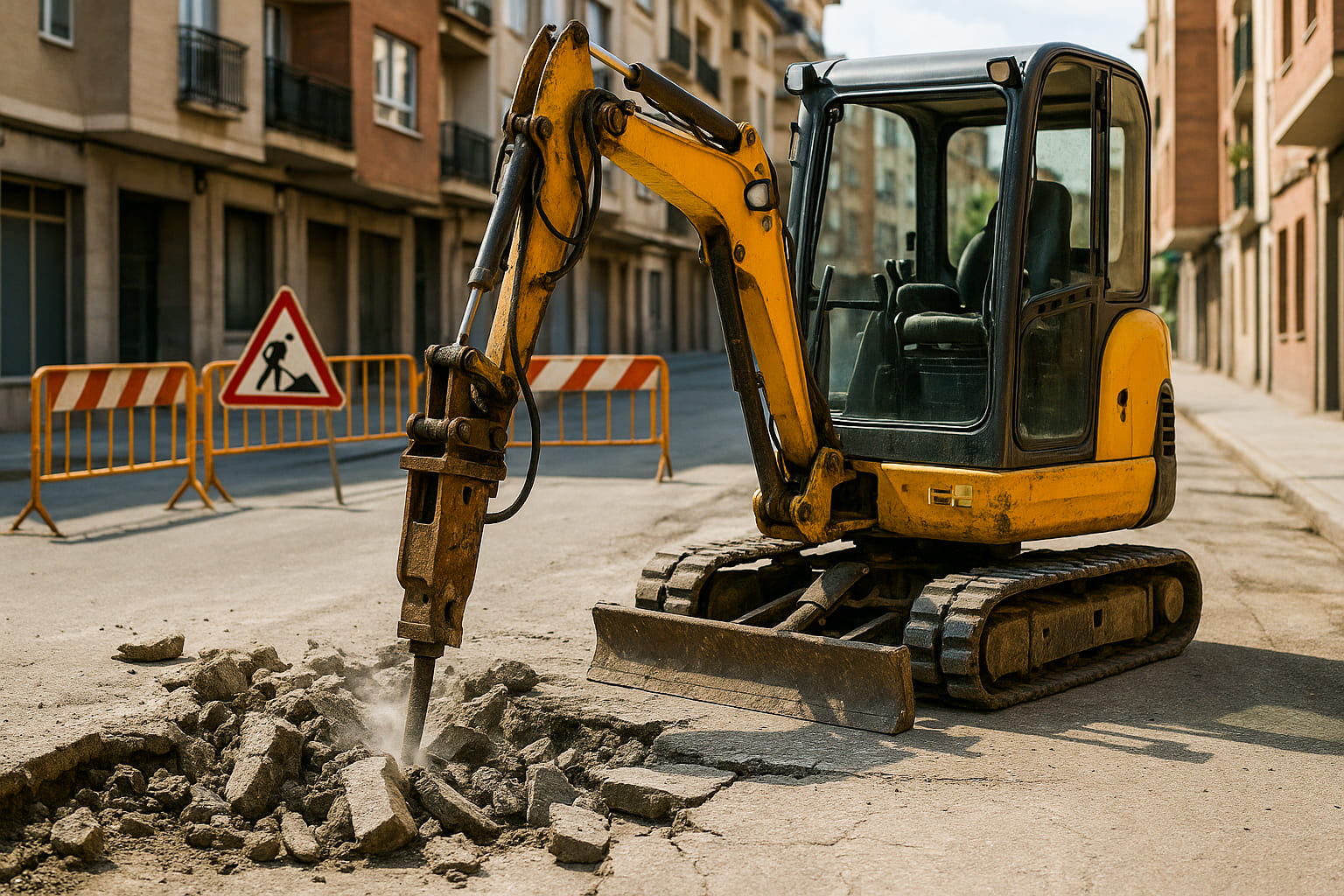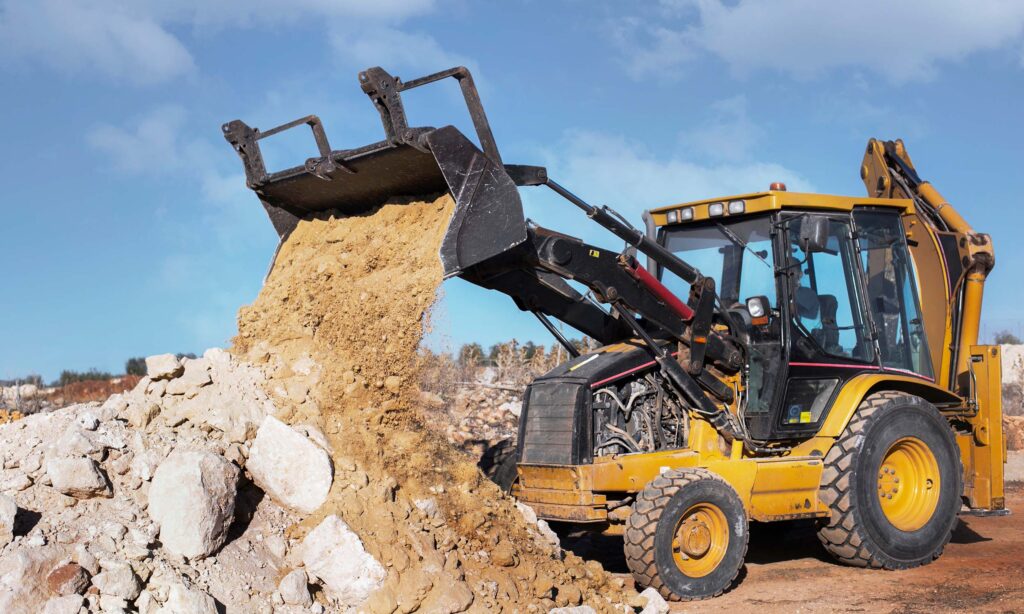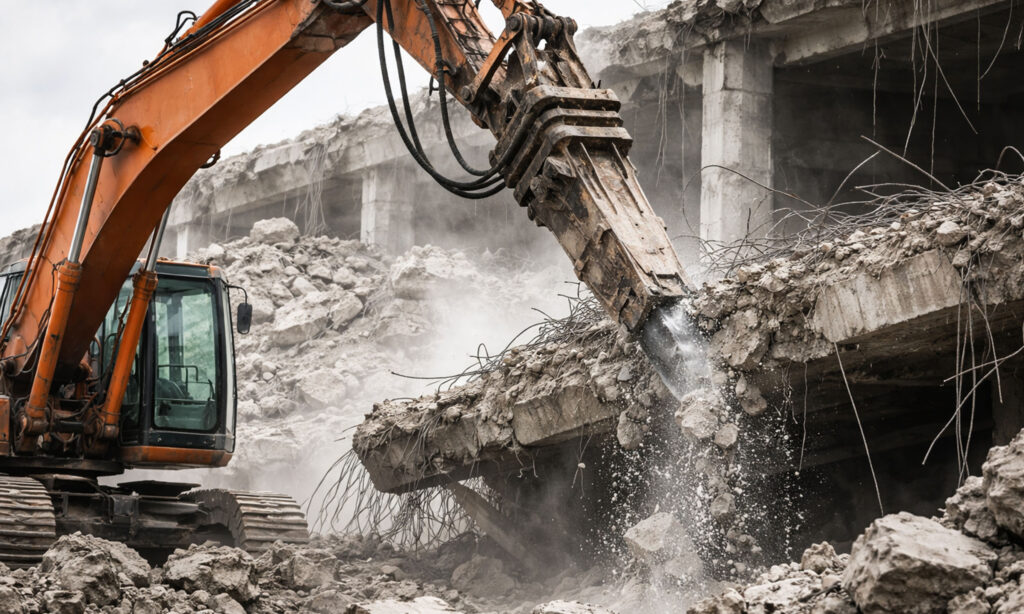What is a hydraulic hammer?
The hydraulic hammer is an excavation and demolition tool that is attached to construction machinery such as backhoes and mini-excavators. It uses hydraulic pressure to generate repetitive impacts on hard materials such as concrete or rock, facilitating earthmoving and opening work in hard rock. This equipment is essential in the construction industry, where efficiency and adaptability make the difference.
Operation of the hydraulic hammer
Its operation is based on the energy transmitted by hydraulic fluid at high pressure. The oil drives a piston that strikes a cutting tool, such as a chisel, transferring kinetic energy to the material. This hydraulic impact makes it possible to break resistant structures without using explosives or invasive methods.
Hydraulic hammer components include the hydraulic cylinder, cushioning system, control valve, working tool and main housing. All are designed to work under high pressure conditions and with demanding materials. The applied pressure must be regulated according to the type of machinery being used, as too much or too little could reduce its efficiency or damage the equipment.
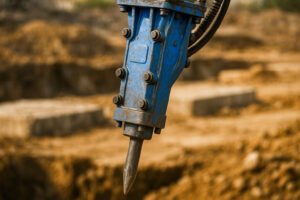
Demolition and excavation applications
In construction projects, hydraulic hammers are used for controlled demolition and rock excavation tasks. They are common on urban construction sites, where precision, low noise and safety are required. They adapt to different types of excavations and allow working in spaces where other methods would be ineffective.
They are key in excavations in hard rock or open pit areas, as well as in pipelines and foundations where shovels cannot advance. In these scenarios, the hydraulic hammer makes it possible to fragment the ground without compromising nearby structures. Its versatility makes it suitable for different types of machinery, from mini-excavators to large construction equipment.
Advantages of the hydraulic hammer
- High efficiency in resistant materials
- Reduced costs due to less use of auxiliary machinery
- Safety and efficiency in all types of environments
- Adaptable to different types of excavations and heavy machinery
In addition, the use of hydraulic hammers contributes to cleaner and more controlled execution. In the construction sector, where deadlines and precision matter, it is a tool that makes the difference.
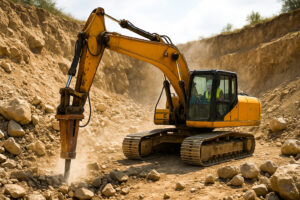
Choice and maintenance
To choose a good hydraulic hammer you have to consider:
- Applied pressure and hydraulic flow rate of the machine
- Type of tool required
- Compatibility with construction machinery
Safety measures should also be taken into account when operating this type of equipment, such as the use of hearing protection, eye protection and resistant gloves. A trained operator can prevent accidents and improve machinery performance.
Maintenance includes checking hydraulic fluid, greasing components and checking for wear. Using high-quality heavy equipment spare parts is key to ensuring long service life and good performance. Reliable spare parts distributors are essential to ensure a continuous supply of parts.
Where to buy hydraulic hammers
At IMOP, specialists in spare parts for construction machinery, you will find reliable hydraulic hammers, components and spare parts for all types of projects. In addition, they have a technical team that will help you select the ideal model according to your needs.
More information
If you want to learn more about how a hydraulic pump works or the role of hydraulic oil in heavy machinery, we recommend reading this technical article on hydraulic systems in construction.

